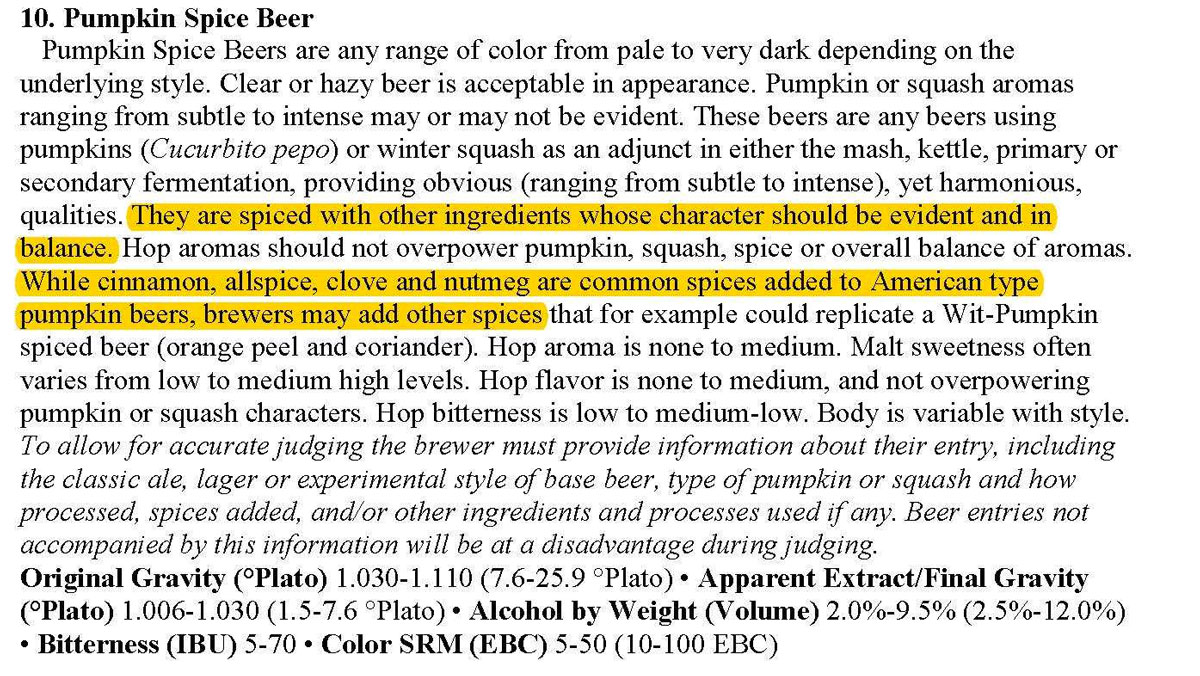“Category 6: Pumpkin/Squash Beer,” read Great American Beer Festival competition director Chris Swersey during the 2016 medal ceremony. “The Bronze: Butt-Ah Nut from BTU Brasserie in Portland, Oregon.”
Swersey paused before continuing, then dropped the news: “No other medals were awarded in this category.”
The crowd of brewers in the Bellco Theatre during the 2016 Great American Beer Festival groaned. Swersey, the calm, often-melodic emcee of the beer industry’s biggest prize glanced briefly from his awards announcement at the crowd. “The judges wanted to send a clear message about following the style guidelines,” he said, and then continued to announce the next category.
(MORE: 8 Beers We Want to Share with Fictional Presidents)
No silver or gold awarded for the Pumpkin/Squash categoryOpens in new window — is that possible? Can they do that? Even Swersey, speaking to me a couple weeks after the competition said it seemed rare for judges to omit two of the three medals in a category.
Integrity of the GABF Competition
So, how does it happen? Does it make sense? Yes, if you are part of the GABF as an organizer or a judge, the integrity of the competition dictates that the award not be a “rubber stamp.” Let me explain.
Great American Beer Festival judges are a diverse group of brewers, beer writers, sensory scientists and brewing industry suppliers. Chosen by their peers, judges have to provide competition organizers with multiple references of their experience and ability. Prospective judges wait years to be invited to participate in the “Academy Awards of beer competitions.”
The GABF is definitely not sitting with your buddies sharing opinions on the newest six-pack to hit the shelves. The days are long and palate fatigue is a real concern. They have formal and on-going sensory training. The competition remains blind, one of the many aspects of the competition to solidify its integrity. Judges and volunteers must sign confidentiality agreements, pledging that nothing leaves the judging rooms. To the judges, organizers and parent organization of the GABF, the Brewers Association, the GABF is not just about handing out awards, it is about identifying the very best beers in the United States.

With all of the beer talent and high stakes of GABF, the judging is intense. So how did the judges come to a consensus not to award silver and gold in Pumpkin/Squash in 2016?
“Judges need to play the role of gate keepers — to make sure they get it right — all in an effort to give confidence to the consumer that the beers they award medals to mean what we want them to mean,” Swersey says.
“Anytime the judges think that medals should not be awarded, the competition manager is brought to the table for a discussion to make sure the judges understand the award criteria and the details of the style guidelines,” longtime judge and former competition director Paul Gatza points out, “[and] to make sure all judges at the table have expressed their voice on the matter.”
Judging Based on Style Guidelines
What made pumpkin/squash beers so difficult for brewers to nail? Category 6 was part of the 2016 updates in the competition style guidelines, which is the set description to which each beer is held. It’s very important to understand that judges do not just choose their favorite beer. They judge against a list of criteriaOpens in new window. This may have been the reason for the lack of medal awarded this year, as there has been a long-held criticism that pumpkin squash beers made solely with the flesh of pumpkins or squash were too easily confused or lost in the midst of the more overt character of pumpkin-spiced beers. The category was split this year to have a standalone category that specifically judged beers made with pumpkin or squash and without spices.

“Sometimes when there is a new category that evolves from a previous category, there may not be the diligence [from brewers] to study the guidelines in depth and consider alternative categories that may be a better fit for the specific beer, such as a category that includes other ingredients or the balance of flavors allowable in a category,” Gatza explains.

From Swersey’s warning during the ceremony, one can assume that the brewers who entered the category did not fully read the guidelines and that many of the beers should have been entered in category 10 (seen above). Having experience judging beer competitions in this manner, I can say that it is not uncommon to get a beer that is miscategorized, making the entry an easy decision not to move forward in the competition, regardless of whether the beer was well made.
(MORE: 6 Things Businesses Can Learn from Craft Beer)
While brewers might have been too hasty in entering beers in the category, Swersey says he would consider communicating that the categories are separate in the future. Perhaps if the categories were listed closer together, the difference in the styles would have been more obvious. This year they were at category 6 and category 10, respectively.
The prospect of being a professional beer judge might seem like more of a ceremonial title, but the people who work to become GABF judges know how serious the job is. With the quality of beers being produced in America today, their jobs will only get tougher, and one can imagine that the keenness of competing brewers will not let this year’s lesson turn into another missed medal opportunity next year.
“Once a style is established for a length of time, brewers tend to know the guideline inside and out,” says Gatza. “We may see brewers who enter beers in another category see a better fit here and enter this category in the future. Similarly, we may see brewers who determine their beer fits a different category better.”
Is there a gold medal quality pumpkin/squash beer in America? We will find out in 2017.
CraftBeer.com is fully dedicated to small and independent U.S. breweries. We are published by the Brewers Association, the not-for-profit trade group dedicated to promoting and protecting America’s small and independent craft brewers. Stories and opinions shared on CraftBeer.com do not imply endorsement by or positions taken by the Brewers Association or its members.


Share Post